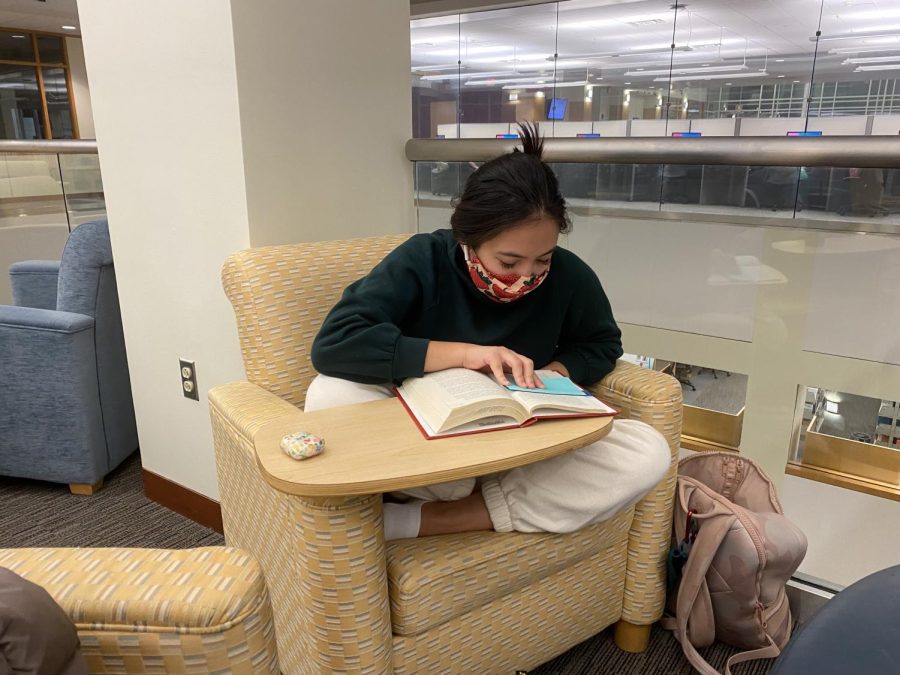Amid National Omicron Surge, Spring Semester Sees Updates to COVID-19 Testing and Isolation Protocols
As the omicron variant surged across the country during December and January and new information about its development emerged, Colgate updated its testing and isolation protocols ahead of the start of the Spring semester, which began last week. Upon arrival to campus, all students were required to go through two rounds of testing, the first immediately upon check-in prior to the first week of classes starting on Jan. 24, and the second taking place during the week. According to Joseph Hernon, associate vice president for Campus Safety, emergency management and environmental health and safety, 78 student cases of COVID-19 remained in isolation as of Monday, Jan. 31. While this figure is higher than at the start of the Fall semester, Campus Safety Compliance Manager Brittany Fuller said that because rapid antigen tests can’t detect the specific variant of a case of the virus, Colgate doesn’t have official data on the presence of the highly transmissible omicron variant.
In an email sent out to the Colgate student body on Friday, Jan. 21, Hernon outlined the university’s protocol for isolation in the case of a positive COVID-19 test, where students who tested positive were required to quarantine for a minimum of five days and to take a rapid antigen test on their sixth day. Students who tested negative no longer had to quarantine, while those who tested positive had to quarantine for an additional five days.
“Where the antigen test comes in is that according to our doctors and our biologists and everyone through the task force, if you test positive on an antigen test, it’s likely that you’re still contagious,” Hernon said.
Hernon explained that after testing positive, students would receive a call from the Student Health Center informing them of their case status, and discussing next steps for their specific isolation protocol.
According to the email from Hernon, students who test positive are allowed to quarantine in their rooms if they either have a single with a private bathroom, or share a private bathroom with a roommate who had tested positive in the last 90 days. Students who do not meet the previous criteria and lived within a 300 mile radius of campus are asked to return home to isolate if they’re able, whereas those living outside of this radius are brought to one of the university sponsored isolation spaces. These spaces currently include 76 Broad Street and the Wendt University Inn, serving again as an isolation space after it was a student residence in the fall. Students who received news of their positive test at late hours of the night and are not eligible to quarantine in their rooms were asked to leave campus by 9 a.m. on Monday-Friday and by 11 a.m. on Saturday and Sunday.
Professor of Sociology and Task Force on Reopening member Carolyn Hsu explained that staff and faculty expressed frustration regarding the guidance they were provided by the university. She commented on the factors that impacted the guidance provided by the Task Force.
“Because omicron is so new, and because we were getting new information every day, we didn’t make many of our policy decisions until very close to the beginning of the semester,” Hsu said. “We wanted to keep people safe, but we also didn’t want to mandate any restrictions that were not necessary because restrictions also have costs, in terms of staffing, energy and mental health.”
Hsu held her courses online during the first four days of classes, returning to in-person teaching this past Friday. She accommodated the small number of students who were in isolation by providing outside of class note taking options, which included pre-recorded lectures and time slots to meet with her. She emphasized the importance of not pressuring students who are sick to prioritize their coursework, but instead focus on resting and getting better.
Sophomore Sydney Goldberg, who tested positive for COVID-19 during her arrival test and left campus to quarantine at home, said she felt the protocol was effective and clear, expressing appreciation for the support she received on behalf of Student Health Services and her academic dean.
“I think the process was effective because I had to check in with multiple people,” Goldberg said. “Before I left, I had to stop by the health center tent at the Sanford Field House and get an at-home COVID-19 test to use on my sixth day.”
Greta Ferdinand is a senior from Portsmouth, NH concentrating in mathematics with a minor in philosophy. She has previously served as news editor and contributes...






